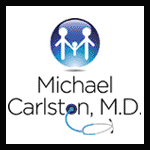
For half a century now, medical science has proven, again and again, that emotions have a major impact on our heart health. Anyone over 40 is likely to recall the term “Type A” and the danger Type A behaviors pose for the heart. Now we know that those who are depressed after suffering a heart attack are much more likely to die in the following 18 months than other people (by a lot – maybe 3- 6 times more likely!). The long-term wear and tear on the heart from emotional stress is pretty obvious if you think of it. But even in the short-term, stresses, especially anger, have a profound impact. A couple of years ago, researched established linkage between extreme anger and sudden cardiac death. I have written about this before. The latest news in this regard is a study of studies (aka a “meta-analysis”) considering 47 years of research on angry outbursts and major cardiovascular events.
None of this should be in the least bit surprising. Your great-great-grandmother could have told you that getting upset is unhealthy. She could have learned it from ancestors stretching so far back that its anyone’s guess how old this knowledge is. Physiological research long ago showed us that getting angry can drop the heart’s output BY 70%!! No medication can do that. If a person’s heart abruptly stops working (pretty much, anyway) of course that is REALLY bad.
The question everyone should be asking, ESPECIALLY those of us in healthcare, is why we are doing so little about this. Doctors are fixated on statins and cholesterol, to the point of turning away from the scientific evidence contradicting our entrenched prejudices. All the while ignoring the glaring importance of emotional health. What about you? Have you been told you should take a statin? Was your emotional health also discussed at that time?
Just like prescribing drugs for osteoporosis without looking at a patient’s diet to see how much calcium she is consuming or prescribing GERD medications without suggesting that the patient try avoiding lactose-containing dairy products, we are too often both unscientific and careless. Taking care of the simple fundamentals, including the essential health habits IS good medicine and VITAL to your health. NOTHING can replace the essentials.
(Photo courtesy Craig Sunter)
